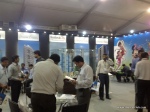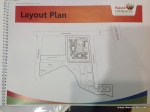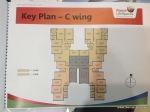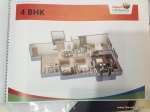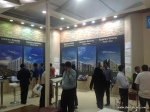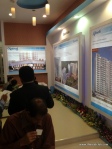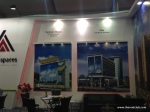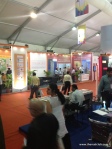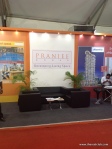Category Archives: Conference
Carpet and Built Up Area Saga – The old Story Continues….
Big names ignore code of conduct at MCHI- CREDAI property exhibition, quote rates on basis of super built- up area
VARUN SINGH varun. singh@ mid- day. com OF the 120 builders showcasing their properties at the MCHI- CREDAI exhibition yesterday, not more than a dozen were selling flats on the basis of carpet area. According to MCHI’s own code of conduct, a builder should disclose the carpet area to the flat buyer.
Instead, an overwhelming majority of builders at the exhibition organised at the Bandra Kurla Complex by MCHI- CREDAI — a representative body of real estate developers — were selling on the basis of “ saleable” area, which includes built- up and super built- up area.
Builders like the Ajmera Group, Hiranandani, Lodha and many other reputable players in the real estate industry were found sticking to saleable.
The chairperson of the Exhibition Committee of MCHICREDAI is Bandish Ajmera. His uncle, Rajni Ajmera, has been the president of MCHI. Niranjan Hiranandani, too, has held the post of president of MCHI in the past.
Representatives at the stalls, when asked whether they were selling on saleable or carpet basis, were prompt to reply: “ Saleable.” One even said, “… Else, how will a builder make profit.” In the sea of saleable, there were a few swimming against the tide. One of them was the president of MCHI, Paras Gundecha, who was selling his flats on the basis of carpet area.
Like him, Rustomjee also talked carpet while quoting its prices.
In September 2011, MCHI had come out with code of conduct, which specified that a builder had to clearly state the carpet area to the purchaser (‘ Now Code of Conduct to Govern Builders’, MiD DAY, September 16, 2011).
The exhibition, where a written sign loudly proclaimed ‘ MCHI hai toh bharosa hai’, saw most builders not following the code and selling flats on the basis of saleable area only.
On the question of why the code was not being followed, builders said the carpet area concept would take some time to settle in as a trend.
“ On the positive side, there are builders who are talking about carpet area at the exhibition,” Bandish Ajmera said. “ It will take some time; already within a few months builders have started talking to customers using carpet area rates. I am sure in the coming days all builders will disclose to customers the carpet area. Whenever a buyer asks for the carpet area, we do tell him the same.” Ajmera said as the paperwork always involved carpet area, the customer was not kept in the dark about it.
“ At the end of the deal, every flat is registered on the carpet area, the stamp duty and registration fees are paid on the carpet area, and thus the homebuyer automatically becomes aware of the carpet area,” he said. Niranjan Hiranandani of the Hiranandani Group said: “ All our deals on paper are only on carpet, however it’s the customers who want to know the saleable area along with carpet, and hence we tell them both.” S Karthik of Lodha claimed that none of his projects were sold on saleable, but when informed about what was happening at the exhibition stall, he said: “ I will have to check on this.” Another builder, who spoke on the condition of anonymity, said: “ It’s the customers who want to know the super built- up rate, so we tell them the saleable area. Anyway, there’s not much difference between the saleable and carpet area prices. The builder divides the total sale amount with the carpet area when he sells on carpet area basis and with saleable when he sells on super built- up. For example, if a builder is selling an apartment of 500 sq ft carpet at the rate of Rs 1 crore, the rate would be Rs 20,000 per sq ft.
If he sells the same on saleable basis, the area would go up to 800 sq ft and the rate would come down to Rs 12,500 per sq ft.”
Disappointed visitors
Prospective homebuyers at the exhibition complained that most builders showed them flats that they were selling only on saleable area basis.
R G Gulati, who came looking for an affordable home, said: “ Every time I come, the flat prices are high. This time, every builder showed us flats only on saleable. Why would a builder sell to us a flat on carpet area when he’s selling everyone on saleable? Why would he make arrangements for me alone?” Another home- seeker, who did not wish to be named, said: “ We know the final price won’t differ irrespective of whether the builder sells the flat on carpet or saleable area basis. But when the builder discloses the carpet rate, we at least know at what rate we are getting the home and how much area we will get to use.”
MINISTER SPEAKS
Minister of State for Housing Sachin Ahir said: “ It’s high time that the BMC and the revenue department start the process that we have asked them to. We are trying to ensure that the BMC passed building plans only on carpet area, and the stamp duty department should register flats only when it sees the passed carpet area plan.
The customer also should now ask the builder for sale only on the basis of carpet area.”
Govt may consider easing VAT norms
TAXING TIMES
Govt may consider easing VAT norms
Fin Minister Hints At Relaxation For Smaller Flats
Mumbai: The state cabinet on Wednesday discussed the possibility of providing relief in collecting value-added tax (VAT) from builders for underconstruction flats sold between 2006 and 2010. A demand was raised in the state cabinet to apply the post-April 2010 composition scheme of levying 1% of the agreement value to buildings constructed between 2006 and 2010 instead of 5% of the works contract value being currently sought.
MMRDA seeks new means for revenue creation
The MMRDA is set to explore new means to generate revenue. Sources said a “white paper” on MMRDA projects will focus on the development of new sources of generating revenue. To fund big-ticket infrastructure projects in Mumbai and other areas in the state, the MMRDA has so far generated revenue by selling land parcels in the Bandra-Kurla Complex (BKC) and Wadala.
With an outflow of over Rs 70,000 crore expected towards infrastructure projects in the next decade, the white paper is expected to stress on the urgent need for alternate sources of revenue for the body.
MMRDA sources said the current sources of revenue will not be adequate to meet long-term demands. The agency has already moved a proposal for levy of development fee on all property transactions in areas falling in the “zone of influence” of projects like the Metro corridors, monorail and Nhava-Sewri Trans-Harbour Link. Another option is developing private properties jointly with developers.
Sources said the white paper was almost ready and would be presented to CM Prithviraj Chavan within a week. Like the irrigation white paper, this will also be a “status paper” on MMRDA’s proposed projects and its financial health.
Following a demand raised by home minister RR Patil, Chavan had on September 14 ordered a white paper on the MMRDA. The move was seen as an attempt by the CM to score over the NCP, which was under the lens over the irrigation white paper.
Hike in FSI for special townships in Mumbai
Chief Minister Prithviraj Chavan on Monday reiterated plans to increase the FSI for special township projects. The government’s special township policy allows a private developer holding over 100 acres of land to develop township along with necessary infrastructure amenities.
Sources said that Chavan is toying with the idea to double the FSI allotted for such projects. The maximum FSI of 1 for the entire plot (global) may be raised to 2. The allotment of global FSI would mean higher FSI for the building’s built-up area too. Chavan said, “These townships should have business districts and the developer should provide infrastructure. It should be like BKC that decongested south Mumbai.” Some within the government and outside have expressed reservations over doubling the FSI.
A slew of recently released books on different aspects of real estate tackles everything one needs to
In a city where flats prices have moved from the lakhs range to crores and housing society members are locked in fierce and often mortal combat with each other over issues like charges and parking space, experts are often inundated by questions from confused residents.
Many of these are about their rights as buyers and housing society members. Housing expert Vinod Sampat decided to compile all this into books and thus Sampat’s efforts fructified into 11 books on all aspects of real estate, recently released at a function in Ghatkopar.

Here’s what you wany to know: Vinod Sampat makes a point
Sampat says, “In this way, it is easy for housing societies to address problems and doubts as everything is indexed in the books under various different topics.” Some of these 11 books are written by Vinod, Dharmin, Heena and Mithil Sampat. Together, the Sampats form the first family of housing society matters in the city, to give them a label. Vinod Sampat laughs at that description. Here are some of the most Frequently Asked Questions (FAQ) taken from these books.
Excerpts
Can a builder charge an amount as per his sweet will, if I wish to sell my flat when no Co-operative Society has been formed by the builder?
Pursuant to the Notification issued by the Housing Department, the builder is not entitled to charge a single rupee at the time of transfer of flat by the flat purchaser.
Can a Co-operative Housing Society as a matter of right, recover say R one lakh at the time of flat transfer?
Once the legal entity like a co-operative housing society is formed, then, the maximum transfer charges that may be taken by the co-operative society for transfer of flat is R 500 towards transfer charges and R 25,000 towards share premium amount. I may add that if any individual pays a certain amount voluntarily at the time of transfer, then it may be difficult for the individual to recover the said amount from the co-operative society.
The builder is demanding five per cent amount towards Valued Added Tax (VAT) not only on the cost of the flat but on the maintenance charges. Am I liable to pay the said amount?
As of date, 1 per cent gross amount has to be paid towards VAT. As far as the amount payable from June 20, 2006 till April 1, 2010, the builder has an option to select the method under which he would be paying VAT. The Actual Expenses Method, Standard Deduction Method and Compensate Rate Method are the three alternative methods.
Under Actual Expenses Method: Certain deductions are permissible like the cost of labour, cost of sub-contracts, cost of consumables and services, value of land and cost of establishments. The builder is eligible to reduce taxes i.e. VAT paid known as input tax credit on procurement of material from the total tax payable.
Under Standard Deduction Method: If the builder is not in a position to determine the material value on actual basis, option is provided to determine the value of material at 70 per cent by allowing ad hoc deduction of value services at 30 per cent of the total contract value. The builder is also eligible to reduce the land value from the total contract value and input tax credit from the total tax payable.
Under Compensate Rate Method: The builder has an option to discharge VAT liability by paying ad hoc 5 per cent, of the total contract or Agreement Value of the property. The rule is silent about the deduction of land value from the contract value. However, input tax credit is available to the builder.
Irrespective of the options, the VAT liability on the builder would not exceed 2.5 per cent. From April 1, 2010, uniformity is introduced and ad hoc one per cent on the total contract or Agreement Value of the property has to be paid as VAT. One needs to note that if the construction of the flat is completed and the Occupation Certificate is received before purchasing the flat, then VAT is not to be paid. Under no circumstances can a builder charge VAT or maintenance expenses.
What are the precautions that should be taken by a flat purchaser if he is purchasing a flat in a building that is going for redevelopment?
The flat purchaser should make it a point to go through the Development Agreement executed by the Co-operative Society with the builder. He should ensure that the plans of the property are passed. He should talk with the office bearers of the Society. It is advisable for him to take a bank loan on the said flat. He should also ensure that the flat if any offered by the builder to the Society, as lien is not the flat, which is being sold by the builder to the flat purchaser. The payment to be made to the builder should be linked to the various stages of construction. Above all, the track record of the builder is of utmost importance.
I am secretary of the Society. My Society is going for redevelopment. What precautions should be taken by the Society to ensure that there are no problems at a later date?
Please ensure that the builder has undertaken redevelopment projects. As office bearers of Co-operative societies, you should ensure that the builder obtains a Building Completion Certificate. You have to ensure that the construction goes on as per the Bar Chart, which must be annexed to the Agreement. Individual Members Agreement should be registered before the members vacate the individual flat. The best way to ensure that the builder does not cheat you is to insist for 10 per cent lien on the property till the Building Completion Certificate is obtained by your Co-operative Society.
Is the permission of the Registrar of Co-operative Societies required by the Co-operative Society, if it wants to go for redevelopment?
In a landmark judgment delivered on March 8, 2010 in Civil Appellate Jurisdiction in Writ Petition No. 10285 of 2009 by the High Court in the case of Harsha Co-operative Housing Society Limited and Others v/s. Kishandas Rajpal and Others, Justice (Mrs) R S Dalvi has categorically stated that the reliance upon the Government Notification is itself misplaced. When the members of the Cooperative Housing Society which, under law of Cooperation, decides by a majority of 11:1 members that the Society premises be developed in a particular fashion by a particular developer, it would be contrary to the principles of democracy by which the Society is governed, for the sole dissenting member to interfere and require a procedure, not required by the majority of the members to be followed which would only consume time and be counterproductive. The Government Resolution would be required to be followed by the Society where the members are unable to come to any decision by a resolution of their own. In view of the same, I am of the opinion that permission of the Dy. Registrar of Co-operative Societies is not required when a Co-operative Society is going for redevelopment.
The General Body meeting of the Society was called on August 10, 2012. Is it necessary that the proceedings of the General Body meeting as well as Managing Committee meeting should be recorded? What is the procedure with regards to complaints being made by members?
I invite your attention to the Government Circular dated March 15, 2010 wherein it has been categorically stated that Minutes of the Managing Committee and General Body should be video recorded and a copy must be given to all the members. It has also been specified in the circular that there has to be a system of instant redressal of complaint and for the same, three member Committee should be formed. The Complaint Redressal Committee should be headed by the Chairman or the Secretary and one member should be appointed by the General Body, who should not be a Managing Committee Member. One lady member resident in the Society, should also be part of the Committee. Members with complaints should put up their complaints before the Committee. If the Committee is not able to solve them, then only the member should file a complaint before the Registrar of Co-operative Societies. Hearing should be done by the Registrar of Co-operative Societies within 15 days and further action has to be taken by the Registrar. In reality, the said Circular is not implemented by Co-operative Societies.
I have heard about the Housing Regulatory Act, which is proposed to come into effect as soon as it receives the approval of the President. Should my Society wait for the new Housing Regulatory Act or should my Society approach the Courts immediately to get Conveyance?
The bureaucrats have provided negligible budget of R 1.5 crore for setting up of infrastructure for the Housing Regulatory Authority for the entire State of Maharashtra. Various alternatives are available to a legal entity like a Co-operative Housing Society to get conveyance. Today, the legal entity can approach the High Court, City Civil Court and Consumer Court. In addition they can approach Criminal Courts like Metropolitan Magistrate’s Court. It is advisable to immediately file a case in the Consumer Court and Metropolitan Magistrate’s Court. The Housing Regulatory Act is tilted in favour of the builders.
When is a member termed as a defaulter?
If on the due date of the bill, the member does not make the payment, then he can be categorised as a defaulter. In such circumstances, the Society can also charge interest. However, it is important that there should be a demand made upon the member.
Can a defaulter contest the election? Can a defaulter propose a second candidate for the election?
A defaulter cannot contest election. However, a defaulter can propose and second a candidate for election.
For what should the member approach the Registrar of Co-operative Society? For which type of complaint should the member approach the Co-operative Court?
Many times people approach a different Authority for redressal of their complaint. For normal day-to-day complaints such as (a) Charging of compound interest, not issuing of passbook to members, not admitting the purchaser as member of the Society, recovery of the dues etc., the members of the public should approach the Registrar of Co-operative Societies. The Registrar has power under Section 77A of the Maharashtra Co-operative Societies Act, to appoint Members of the Committee, a new Committee or Administrator when there is a failure to elect members to constitute or whether committee does not enter upon the office. Under Section 78, the Registrar has power of removal of Committee or member thereof. Under Section 79, the Registrar has power to enforce performance of obligations.
The member can approach the Co-operative Court under Section 91 if there are disputes between a member and the outgoing/incoming member. More powers are vested in the Co-operative Courts. It is normally observed that as Co-operative Courts take a long time, there is a tendency amongst members to approach the Registrar of Co-operative Societies, even in matters in which the Registrar does not have the jurisdiction. Section 91 of the Co-operative Court relates to disputes between the Society on the one hand and the members on the other.
Even disputes between members of the Society and other disputes is governed under Section 91 of the Co-operative Societies Act. The value of flats are in lakhs, if not in crores. Thus, the jurisdiction of Co-operative Court is unlimited and is almost on par with the jurisdiction of the High Court as far as pecuniary jurisdiction is concerned. If a member is not paying his dues then too the Society can approach the Co-operative Court for recovery of dues. Election disputes challenging the Managing Committee of any Co-operative Society have also be referred to the Co-operative Court.
Which records of the Society can be inspected free of charge as per Section 32 of the Maharashtra Co-operative Societies Act, 1960? Can the members of the Society inspect all the records of the Society?
As per Section 32 of the Maharashtra Co-operative Societies Act 1960, the members of the Society can inspect free of cost at the Society office during office hours or any time fixed for the purpose by the Society, audited balance-sheet, profit and loss account, list of members of the Managing Committee, Register of Members, Minutes of the General Meeting, Minutes of the Committee Meeting and those portions of the books and records for which his transaction with the Society has been recorded.
Sec. 16: Builder is left scot free even if he does not comply with his statutory obligations like Building Completion Certificate (B.C.C.) No criminal liability for constructing the building on time!!!
Sec. 18 (1): What happen if the builder collects amount in cash initially and does not form the Society?
Sec. 18(2): The government wants CHS Ltd. To fight one another. What about common amenities, Parking Space?
Disclaimer: The authors are not liable for the views in the replies given above. One should crosscheck the same.
How NRIs can deal with tax and repatriation issues on sale of inherited property
In this two-part series, we outline the entire process step-by-step, beginning from the time you inherit the property. In part one, we will look at what documents you need, how you can arrive at the sale value and how to complete the sale transaction. In part two, we will look at tax implications and repatriation rules.
Step 1: Transfer title of inherited property to your name
When you inherit property, the first thing you must do is to transfer the title of the property to your name. You can do this by a process called ‘mutation of revenue records.’ You would need either a copy of the Will or in absence of a Will a Succession Certificate issued by the local court.
We have seen this process in detail in an earlier article. You can refer to it here.
Step 2: Get documents in order
Once you have transferred the title of the inherited property, you need to put together all the papers that are needed in order to sell the property. Here’s a list:
– Original purchase agreement
This is the title document of the property.
– Original share certificate in case of residential unit in a co-operative society
A share certificate is issued by the co-operative housing society to each member. In case this certificate has been misplaced, the member must apply to the society for a duplicate. The member would need to indemnify the society for all costs and give an undertaking that the property is not mortgaged. He would also need to publish a notice in the newspaper and in the society notice boards so that it is clear that no objections exist.
– No objection certificate from the society
The certificate confirms that members of the society do not have any objections to the sale of the apartment. It should also confirm that the seller has no default/outstanding payments to be made to the Society as of date. “Usually this is received once the buyer is finalized as the society gives an NOC stating that it does not have any problem in the owner selling the property to the buyer),” explains Amar Shah, Co-founder of property consultancy firm Golden Abodes.
– Copy of approved plan and occupation certificate issued by the concerned authority such as a municipal corporation
– Lawyer certificate
In the absence of originals of the above documents, the seller must approach a lawyer who would help him with a certificate to prove that he is indeed the rightful owner of the property. “The lawyer would take out a search and title report of the property. This report will track the owners of the property over the last 3-5 decades by tracking records in government registry offices. He will then place a public notice in a regional language and English/Hindi newspapers and wait for the prescribed period of time to see if anyone is claiming rights for the said property. After that, if the search and title report shows the seller as the final title bearer and no objections/claims are raised, he would issue a certificate mentioning that the seller is the rightful owner of the property” Shah explains.
Tax
If you sell the property after 3 years from the date of purchase, you will be liable for long term capital gains tax of 20%. The gains are calculated as the difference between sale value and indexed cost of purchase. Indexed cost of purchase is nothing but the cost of purchase adjusted to inflation. You can find the index here.
In case of inherited property, the date and cost of purchase for purposes of computing the period of holding as well as cost of purchase is taken to be the date and cost to the original owner. “While computing the amount of long term capital gains, the cost to the previous owner (i.e. the person from whom the property is inherited) would be considered as the cost of purchase. Though the plain reading of the law suggests otherwise, the courts have taken a view that the indexation benefit can start from the year in which the previous owner acquired the property,” explains Vaibhav Sankla, Director, H&R Block India.
Index values are from financial year 1981-82 onwards. If the property was purchased prior to 1982, you would have to get the fair value of the property assessed as of April 1, 1982. This will be available from the valuation officer at the local municipal authority. In case you do not have records of the cost of purchase of the previous owner, you would have to get the valuation done by the municipal authority of the jurisdiction where the property is situated.
As an NRI, you will be subject to a TDS of 20% on the long term capital gains.
If you sell the property within 3 years of purchase, you will be liable for short term capital gains tax at your respective tax slab. Short term capital gain is calculated as the difference between the sale value and the cost of purchase (no indexation benefit is available). You will be subject to a TDS of 30% irrespective of your tax slab.
But there are certain instances when the NRI can get a waiver of the TDS such as if the NRI is planning to re-invest the capital gains of the property in another property or in tax exempt bonds (discussed below). In such cases, the NRI will be exempt from tax in India and would not like to have TDS deducted.
“In such cases, the seller can apply to the income tax authorities for a tax exemption certificate. Remember that he must make this application in the same jurisdiction that his PAN belongs to. He will have to show proof of reinvestment of capital gains. If he is planning to buy another house, he would have to show the allotment letter or payment receipt. If he is planning to invest in capital gains bonds under section 54EC, he would need to submit an affidavit stating that he would invest the capital gain amount in to bonds. Usually, the buyer holds back the last installment of payment until this certificate of exemption is furnished to him by the seller. In case of bonds, the certificate usually mentions that the buyer can make the complete payment once the money is invested in bonds and receipt of investment is received,” explains Amar Shah, Co-Founder of Golden Abodes.
The payer of the sale proceeds; even if he is an individual will be responsible for deducting tax at source and paying it to the Government. He must get a Tax Deduction Account number (TAN) and issue a TDS certificate for the same. What if the payer/buyer does not go through this process and fails to deduct tax? The onus of deducting tax is on the payer. So in case the individual does not deduct tax and the NRI too fails to declare the income and pay the tax, the income tax authorities can hold the payer responsible.
Tax exemptions
Section 54
According to section 54 of the Income Tax Act, if you sell a residential property (after 3 years from date of purchase) and purchase a residential house within 2 years from date of sale (or construct a residential house within 3 years from the date of sale), your gains will be exempt to the extent of the cost of new property. Suppose your capital gains is Rs 30 lakh and the new property is for Rs 20 lakh, then Rs 10 lakh will be treated as long term capital gains.
The residential property that you sell may either be a self-occupied property or one that was given on rent. Further, the new property must be held for at least 3 years.
Now an important question that NRIs have: Can you invest the proceeds in a foreign property and still avail the benefit of section 54? “The appellate authorities have held that exemption can be claimed under section 54 even if the new house is purchased outside of India. However, a contrary view exists too,” Sankla says. So it might be best to consult an expert for your individual circumstance before you take the decision.
Section 54EC
According to section 54EC of the Income Tax Act, if you sell a long term asset, in this case, the residential property (after 3 years from date of purchase) and invest the amount of capital gains in bonds of NHAI and REC, within six months of date of sale, you will be exempt from paying capital gains tax. Your bonds will remain locked in for a period of 3 years. The total amount which can be invested in such bonds cannot exceed INR 50 lakh per financial year. Lastly, if the amount invested in such bonds is less than the amount of long term capital gains then only a proportionate exemption is available.
Section 54F
According to section 54F of the Income Tax Act, if you sell an asset, other than a residential house, say a residential plot (after 3 years from date of purchase), and purchase a residential house within 2 years from date of sale (or constructs a residential house within 3 years from the date of sale), your gains will be exempt. “Note that if the cost of the residential house is less than the amount of capital gains then only a proportionate exemption is available. Further, to be eligible to claim exemption, you should not own more than one residential house at the time of the sale of the asset. Further, the house purchased/constructed for claiming exemption should be held for at least 3 years and no additional residential house (apart from the one purchased/constructed for claiming tax exemption) should be purchased within 2 years (or constructed within 3 years),” Sankla explains.
General permission is available to NRIs and PIOs to repatriate the sale proceeds of property inherited from a person resident in India subject to the conditions mentioned below. If those conditions are fulfilled, the NRI need not seek permission from the RBI. However, if the property has been inherited by an NRI from a person resident outside India, then the NRI must seek specific permission from the RBI
Conditions for repatriation in case of property inherited from person resident in India:
(i) The amount of repatriation should not exceed USD 1 million per financial year
(ii) The NRI must produce documentary evidence in support of the inheritance and an undertaking and certificate by a Chartered Accountant in the formats prescribed by the Central Board of Direct Taxes
(iii) In cases of deed of settlement made by either of his parents or a close relative (as defined in section 6 of the Companies Act, 1956) and the settlement taking effect on the death of the settler the original deed of settlement and a tax clearance / No Objection Certificate from the Income-Tax Authority should be produced for the remittance
(iv) Where the remittance as above is made in more than one installment, the remittance of all such installments shall be made through the same Authorised Dealer
Which account will the sales proceeds be credited into? Sankla explains, “The sale proceeds of inherited property have to be credited to NRO account. An NRI may remit an amount not exceeding USD 1 million per financial year from out of his balances in his NRO accounts. The limit of USD 1 million per financial year includes sale proceeds of immovable properties. Remittance exceeding USD 1 million per financial year requires prior permission of the Reserve Bank.”
Finally, Sankla gives these important tips, “Never forget to check the income tax implications in the country of residence. Many countries tax their residents on their worldwide income. Some countries do provide partial or total exemption on capital gains arising on sale of a residential house if certain conditions are met. Most important point is, if there is income tax liability in the country of residence on the amount of gain then tax payer should re-evaluate if he should consider claiming exemption under section 54/54F/54EC. In such cases, the tax payer may be better off claiming only partial or no exemption in India on the capital gains.”
Centre to ask states to give property rights to slum dwellers
NEW DELHI: Newly-appointed Minister of Housing and Urban Poverty Alleviation Ajay Maken today said the state governments would be asked to issue an executive order to provide property rights to slum dwellers till the Model Bill on the issue is passed.
Soon after taking charge of the ministry today, Maken told reporters that a Model Property Rights to Slum Dwellers Bill, 2011 will be passed at the earliest and the states would be expected to enact their laws based on it within a year.
“Meanwhile, we want the states to implement its provisions through an Executive Order and provide property rights to the slum dwellers,” Maken said, adding that provisions for providing bank loans for construction of the units would also be a part of the order.
“We want these provisions to be made mandatory,” the minister said.
Maken enumerated several ambitious plans which he hopes to implement in the 18 months time that he has before the next general elections.
The Centre would also insist on the states to provide up to 35 per cent Floor Area Ratio in projects for the economically weaker sections. In situ rehabilitation of the slum dwellers would continue to be a priority for the HUPA ministry as shifting the poor away from their source of livelihood would lead to problems for them, he said.
“We plan to rehabilitate them in the vicinity of a five kilometre radius where in situ rehabilitation is not possible,” Maken said.
He was also hopeful of getting Rs 80,000 crore under the 12th Five-Year Plan for the Rajiv Awas Yojana.
Maken said the National Urban Livelihood Mission is also a focus area for him to protect the rights of the vendors who should not be displaced.
“The Real Estate Regulation Bill is also in an advanced stage and will be brought in the Winter Session of Parliament,” the new minister said.
RBI monetary policy fallout: Bankers do not see any immediate cut in lending rates
MUMBAI: Bankers on Tuesday ruled out any immediate reduction in lending rates, saying any step in that direction will be determined by the cost of funds. They, however, indicated that interest rates could drop over a period of time.
After the RBI policy announcement in which cash reserve ratio was cut by 0.25 per cent, leading bankers said this measure will not have any significant impact on their cost of funds.
“Lending rates are not going to come down immediately, though the rates may fall over a period of time,” ICICI Bank Chief Chanda Kochhar told reporters during the customary post-policy media briefing.
State Bank of India was a bit accommodative, saying its asset liability committee (Alco) will meet in a day or two.
“I prefer a secular reduction in lending rates with a cut in the base rate. We have already passed on the previous CRR cuts to the borrowers. However, our Alco will be meeting in a day or two take a call on lending rate cuts,” SBI Chairman Pratip Chaudhuri said.
On impact of the 13 successive rate hike by the central bank through March 2010 to October 2011, Chaudhuri said: “I do not think the 13 rate increases that happened helped in slowing inflation because today’s inflation is largely due to cost push, and not so much demand-pull. Trying to address that with rate of interest as an instrument may not be very good.”
On impact of the 0.25 per cent CRR cut on SBI’s cost of funds, he said, it will release Rs 225 crore and the outgo will increase by up to Rs 300 crore because of the additional provisioning.
He was quick to add “that should not be a problem as the bank has already budgeted a provisioning of Rs 10,000 crore for this fiscal. Asset quality is improving, it will be better in Q2 than in Q1”.
HDFC Bank Managing Director Aditya Puri said interests are not going to come down anytime soon. “We will examine the pros and cos of the move and there is a likelihood that the rates will go down over time, probably in the current quarter alone.”
Government may relax lending norms for cash-strapped reality sector
NEW DELHI: The Finance Ministry is considering a proposal to relax funding norms for the realty sector so that good housing projects are not starved of funds.
“The Ministry is actively looking at options … how to ramp up demand in the housing sector. We are studying all the possible impediments,” an official source said.
“We are of the view that good project will be funded,” the source said.
Banks are cautious in lending to the real estate developers because there is a huge mismatch in price and demand.
While dismissing general perception of holding on to inventories, real estate developers have been expressing concern that many projects are stalled due to lack of funds.
Finance Minister P Chidambaram in his meeting with heads of public sector banks last month had pointed out that close to 5 lakh flats were lying vacant in Mumbai despite robust demand for housing.
Following this, Financial Services Secretary D K Mittal met bankers and the real estate developers body Confederation of Real Estate Developer’s Associations of India (CREDAI) earlier this month and discussed various issues affecting the sector.
The National Housing Bank, the regulator of housing finance companies, has been entrusted with the job of identifying viable projects across 10-15 cities and bring together a consortium of lenders to fund these projects.
Bank credit to commercial real estate has slowed significantly in the last one year. It contracted 1.8 per cent during April-July against 4.4 per cent growth in the same period of previous year.
As per the Ministry of Housing and Urban Poverty Alleviation, India faces urban housing shortage of over 26 million units. Besides, mortgage to gross domestic product ( GDP) penetration in India is a meagre nine per cent as against 15-30 per cent in its peer group of south-east Asia.



